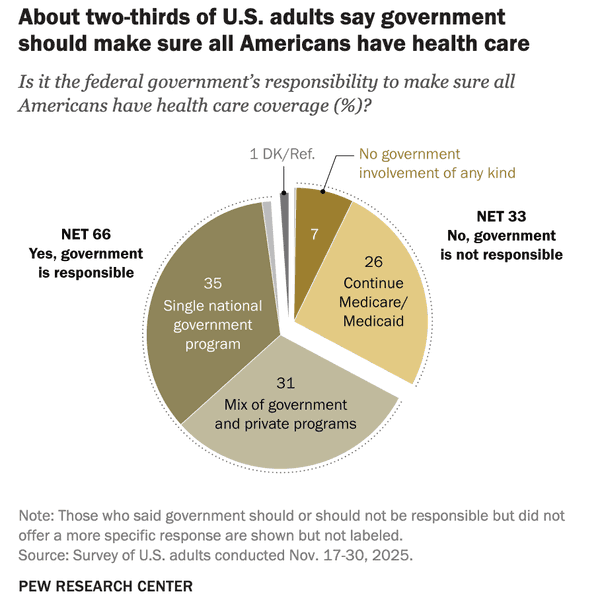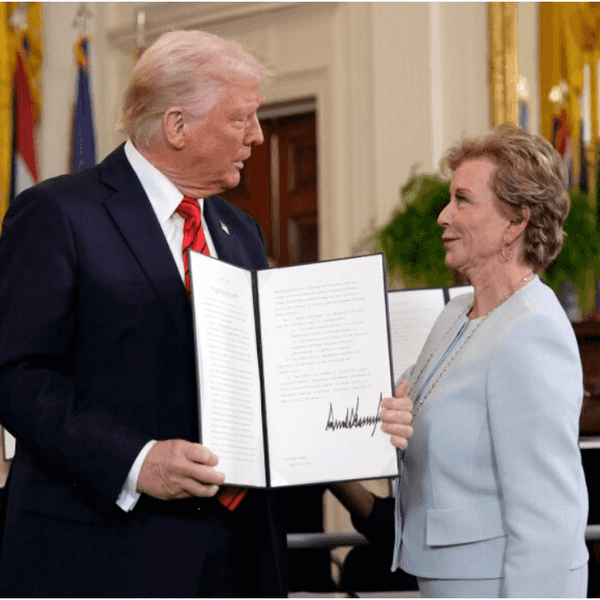Republican Debate Selection Process Is A New Wild Card In Presidential Politics

By Steven Yaccino, Bloomberg News (TNS)
NEW YORK — A month from now, 10 Republican presidential candidates will walk out onto a prime-time debate stage in Cleveland and confront each other face to face for the first time. If the debate were held today, Donald Trump would be one of them. Two sitting governors, a U.S. senator, the runner-up for the 2012 GOP nomination, and the first female CEO of a Fortune 50 company would all be excluded.
That’s an estimate based on qualifying criteria described by Fox News, which will host the GOP showdown in partnership with Facebook on Aug. 6 in Cleveland, using an average of five as-yet-unspecified national polls to determine the lineup. The network should be celebrating its coveted role of hosting the first debate of the Republican primary season, with the prestige and audience that it brings. But instead, the news organization may have stumbled into a political minefield.
In an unprecedentedly large field of 16 presidential contenders, at least half are statistically on the bubble of not qualifying for the debate stage, with only a month to differentiate themselves. The result is a campaign-within-a- campaign, with very different imperatives from the ones the primary process is designed to produce. Campaigns who are in danger of not making the cut may try everything possible to improve their chances over the next four weeks — taking extreme, news-making positions; dumping opposition research on opponents; inundating email inboxes; and blitzing the Sunday television circuit, late-night talk shows, conservative radio airwaves and cable news programs. Instead of spending resources on political operations in early-voting states, candidates may blow that cash on national TV ads to boost name recognition at the eleventh hour.
For candidates on the bubble, the most frustrating thing about the process may be its uncertainty and near-randomness. An analysis by the Bloomberg Politics polling team of the entry criteria released by Fox News suggests that it will be virtually impossible to know which candidates will qualify for the first debate until just days before the event, regardless of what they do in the coming weeks. And because of the varying sample sizes, margins of error, and targeted respondents featured in different national polls, the winners and losers of this new debate primary season may have little relation to their prospects of becoming the eventual nominee. Methodologically, they might as well be drawing straws.
“A microscope has not yet been invented that enables us to determine the difference between the 10th-place person and the 11th-place person,” said Ken Goldstein, a professor of politics at the University of San Francisco and a polling analyst for Bloomberg Politics. “That difference, literally, will be less than half of a percentage point. And maybe even less than that.”
Fox News will be averaging the five most recent national polls “conducted by major, nationally recognized organizations that use standard methodological techniques,” the network said in a statement in May. The polls must be published before 5 p.m. ET on Aug. 4. The 10 candidates with the highest averages will make it into the debate. That number could increase if candidates are tied.
“National polls are the traditional, time-tested yardstick by which presidential hopefuls have long been measured and remain the fairest, most objective and most straight-forward metric for gauging the viability of these candidates,” Michael Clemente, executive vice president of news for Fox, said in statement to Bloomberg. “We will use a range of quality polls that people are currently seeing out there and although all of them may not be identical, all will use methods that are accepted by the polling community. We have already made clear we won’t use partisan and online polls.”
Fox promised to give non-qualifying candidates “additional coverage and air time” that day in Cleveland, which amounts to a 90-minute forum broadcasted on the network during the afternoon — essentially a kiddie-table consolation prize.
In defense of Fox, there is no easy way to host a substantive debate for more than a dozen candidates on one stage. The network points out that there have never been more than 10 candidates in a Republican debate. To be sure, missing the first debate doesn’t necessarily spell death for a candidate’s campaign, and there’s a precedent for selecting debate participants in this way. Four years ago, the network used a similar approach to host a Republican presidential debate in South Carolina. The May 2011 debate featured only five presidential hopefuls after several others (including Mitt Romney, Sarah Palin, Jon Huntsman, Newt Gingrich, and Trump) decided to skip. The network did not release which polls it used, but given the complexities of the 2016 field, and the attention this process is getting, Fox is more likely to disclose that information this year.
The Republican Party has maintained it has no problem with the process. “We support and respect the decision Fox has made which will match the greatest number of candidates we have ever had on a debate stage,” party chairman Reince Priebus said in a statement.
CNN, which hosts the second Republican debate in mid-September, announced its own plan to limit the debate stage to 10 candidates, averaging all national polls taken from July 16 through Sept. 10. Unlike Fox, CNN released a list of the polls that would meet its standards and requires candidates to have at least one paid campaign aide working in two of the four early voting states. CNN will also hold a second prime-time debate for candidates that don’t make it into the top 10. “CNN developed a format that will allow all of the Republican presidential candidates, who meet the eligibility criteria, an opportunity to discuss their visions for the future,” the network said in a statement.
For candidates at the front of the pack like former Florida Gov. Jeb Bush and Wisconsin Gov. Scott Walker, none of this matters. But while lesser-known candidates like former Hewlett-Packard CEO Carly Fiorina have described the debate thresholds as a motivating goal, other presidential hopefuls have been quick to claim the process is unfair. Former Pennsylvania Sen. Rick Santorum immediately called the 10-candidate cutoff “arbitrary,” reminding everyone that at this point in 2011, he barely registered in national polls but went on to win the Iowa caucuses and 10 other states. Last week, South Carolina Sen. Lindsey Graham said Iowa’s first-in-the-nation caucuses were “headed for oblivion” if national polls became the debate criteria norm.
They have a point. Limiting the stage to 10 candidates doesn’t reflect a natural cutoff point in the current Republican field. As it currently stands, there’s probably a top tier of five or six candidates; from there, ranking the field gets far more difficult. “There’s no difference between John Kasich and Bobby Jindal except one’s going to be in and one is going to be out,” said Doug Usher of Purple Strategies, which conducts polling for Bloomberg Politics. “Or maybe they’re both going to be out.”
Perhaps the biggest question mark, pointed out by presidential candidates and political experts, is that using national polls to determine strength in a primary election does not accurately reflect how the parties have traditionally chosen their presidential nominees: by a series of competitions over many months for convention delegates, chosen in caucuses and primaries. That is a fluid, dynamic process, one in which early contests in states like Iowa and New Hampshire can propel unknown candidates into the national limelight.
Clemente said a candidate’s performance in early states often gets reflected in national polls. But the first GOP contest is still six months away and not every state has the same primary rules. There are some that limit their primary contests to Republicans only. There are other states that permit independents or all voters to participate. In some states, only a couple thousand people take part. In others, millions. Simply put, using national polls as a prerequisite for debates will force candidates to compete in a single nationwide primary election, albeit one that does not actually exist. It changes the game.
“People have lumpy strategies in different states,” says Sasha Issenberg, a Bloomberg Politics contributor and author of “The Victory Lab: The Secret Science of Winning Campaigns.” “Their election strategies are predicated on not having their support evenly distributed. You look at Chris Christie and John Kasich banking on doing well in New Hampshire. You have Rand Paul banking on doing well in Nevada.”
Issenberg added, “This could turn their whole election strategy on its head.”
But differing methodologies complicate that calculation even more. Not every poll targets the same types of voters. There are polls that include independents. There are polls with self-identified Republicans, polls with verified registered Republicans, and polls that take an additional screening step to find only respondents who are likely to participate in their states’ primary election or caucus. Each method produces a different result, with broader survey samples benefiting candidates who are perceived as moderate — and candidates who have high name recognition, but not necessarily strong support in key early states.
“They’re using different definitions about who is relevant,” says J. Ann Selzer, president of Iowa-based Selzer & Co., which also conducts polls for Bloomberg Politics. “We’re not dealing with a common denominator.”
In the end, the set of candidates who make it to the debate stage in August will likely hinge on less than a handful of randomly selected voters. Sample sizes for national polls are small; in one recent national poll conducted by the Wall Street Journal and NBC News, the GOP horserace numbers were calculated based on the preferences of 236 Republicans who said they would vote in the primary. The margin of sampling error was plus or minus 6.38 percentage points.
In that poll, only the four candidates — Bush, Walker, Florida Sen. Marco Rubio, and retired neurosurgeon Ben Carson — received more than 10 percent. The 10th-place candidate, Fiorina (2 percent), and other contenders like Graham and Kasich (1 percent each), were statistically tied. When you do the math, the difference comes down to no more than two or three respondents.
The system Fox has designed, with its distortions and uncertainties, is a new wild card in presidential politics. And for the network, the silver lining may be that all the drama — and Trump — may help attract viewers. But the effect on the process is more questionable. “To a statistician it looks like they’re just bumbling around in the dark,” Selzer said. “They’re just throwing ingredients together and hoping it makes a cake.”
She added, “There’s a lot for candidates to complain about.”
(Margaret Talev contributed reporting.)
(c)2015 Bloomberg News. Distributed by Tribune Content Agency, LLC.
Photo: ario via Flickr








